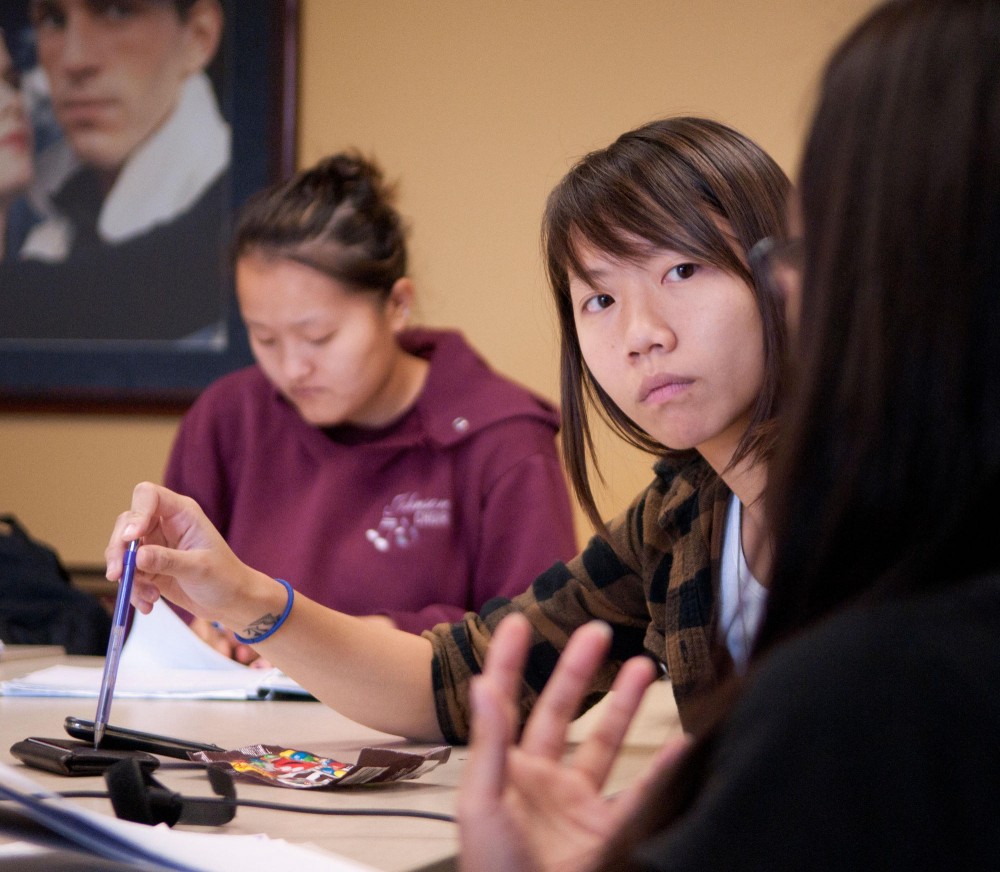The third largest demographic at the University of Minnesota is trying to unite through greek life. The Asian Sorority Interest Group is working to bring a second sorority to campus by next year to join the recently established Delta Phi Omega, along with the Pi Delta Psi fraternity.
The group is hoping to cater to the UniversityâÄôs Asian community, which makes up roughly 8.1 percent of the Twin Cities campusâÄô population and is the third largest demographic on campus, according to spring 2011 data.
âÄúThereâÄôs a huge Asian population, and the other multicultural sororities on campus are Latina or African-American based,âÄù said Jamelah Hersh, president of Delta Phi Omega, a South Asian interest sorority.
There are historically black fraternities and sororities on campus, but the demographic only makes up 4.1 percent of the Twin Cities campusâÄô population, also according to spring 2011 data.
ASIG has been working to establish a second Asian sorority since 2009. The group, which currently has eight members, is still in the process of finding the right chapter for the University campus, said Gaochong Lee, the groupâÄôs president.
The women have been looking at national chapters based in the Midwest in order to make communication with the national organization easier, Lee said.
âÄúWe want to have that support close,âÄù Lee said.
But ASIG isnâÄôt the first of its kind to bring a greek organization to campus âÄî Pi Delta Psi was established on campus in May 2011 after extensive work by the Asian Fraternity Interest Group.
The lack of Asian representation in the community was one of the main motivations for establishing an Asian fraternity, said Patrick Lin, the chapter president for Pi Delta Psi.
âÄúI just wanted to give everyone on campus an opportunity to join an Asian interest fraternity if they choose to,âÄù Lin said. âÄúBefore, they didnâÄôt have that choice.âÄù
The interest group was started in 2009 by Bill Lu and a handful of other men looking to represent the growing Asian population on campus in the greek community.
The process of bringing a new chapter to campus is a tough one, Lu said and included visiting fraternities across the nation and listening to and giving presentations.
âÄúA lot of the interest groups in the nation go through [the process] and only a fraction of them make it,âÄù Lu said. âÄúThe members have to be motivated because itâÄôs a large endeavor. You have to really want it.âÄù
After visiting six or seven chapters, Lu said they knew their search was over when they made a strong connection with Pi Delta Psi.
âÄúWe knew that their four pillars fit the campus,âÄù Lu said. âÄúWe felt that we fit in with them as a family.âÄù
A traditional approach
For many of the Asian men and women on campus, itâÄôs important to have support from people who understand what it is like growing up in a more traditional setting, Lee said.
âÄúThe way we are raised, itâÄôs more traditional,âÄù Lee said. âÄúOur interests are different than other sororities on campus. The support group here isnâÄôt the same.âÄù
The groups will be sharing their sense of tradition with campus at events throughout the year, like the Thanksgivings of Asia event this fall, Lin said.
That sense of tradition and Asian unity was the major reason Lin got involved in bringing an Asian fraternity to campus.
Meanwhile, Hersh said Delta Phi Omega is opening up opportunities for Asian women on campus. The sorority was established last spring and hopes to gather new members by hosting philanthropy events for child literacy on campus.
âÄúWe figure the best way to get people interested is by showing off our philanthropy,âÄù Hersh said.


